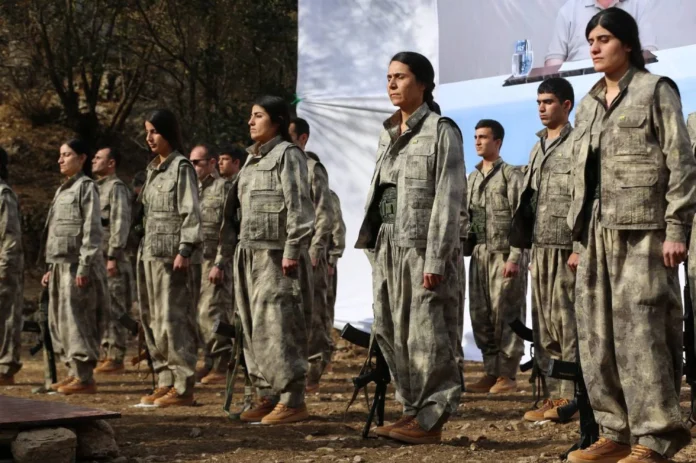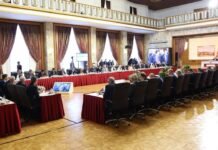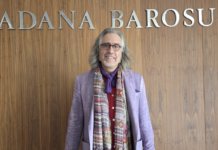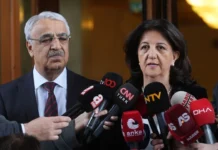A lawmaker from the pro-Kurdish People’s Equality and Democracy Party (DEM Party) has said the Turkish government, the outlawed Kurdistan Workers’ Party (PKK) and the group’s jailed founder, Abdullah Öcalan, all support adopting a “special law” to regulate the reintegration of militants who lay down their arms rather than a general amnesty, as part of the ongoing peace process, Turkish Minute reported.
Mithat Sancar, a law professor and member of the DEM Party’s so-called İmralı delegation, a group named after the island where PKK founder Abdullah Öcalan has been imprisoned since 1999, told the Yeni Yaşam daily that both the government and the PKK prefer adopting a “special law” over a general amnesty.
The law would regulate the return and reintegration of PKK members from northern Iraq and other regions as part of an ongoing peace process with the group aimed at ending its decades-long armed violence.
The PKK announced its decision to lay down arms and dissolve itself in May in line with a call from Öcalan in February.
A commission was established in the Turkish Parliament in August to advance the peace efforts and propose legal steps aimed at the conclusion of the PKK’s dissolution and the fate of its militants.
Sancar said discussions in Ankara now focus on how to legally frame the process of the laying down of arms and the dissolution of the organization as part of the peace process.
“The right approach,” he said, “is to introduce regulations specifically addressing the organization that has disbanded and laid down its arms.” He added that a broader amnesty covering other political prisoners “could lead to complications.”
His remarks confirm that the long-anticipated amnesty, discussed as part of the renewed peace efforts between Ankara and the PKK, would not include opposition figures, journalists, academics or activists imprisoned under Turkey’s controversial counterterrorism laws.
Selective justice concerns
The plan has sparked strong criticism from legal experts and human rights defenders, who say limiting legal reforms to PKK members would further expose the government’s selective and politicized use of justice.
“This is one of the country’s most fundamental problems — distinguished law professors twisting and bending the law,” lawyer Hatice Yıldız wrote on X, criticizing Sancar for supporting a discriminatory measure. She accused the government of manipulating legal reforms to serve political goals rather than justice.
Turkey has long been criticized for its broad application of counterterrorism laws, which rights groups say have turned political dissent into a criminal act. Since a failed coup in 2016, tens of thousands of people, including journalists, activists and opposition members, have been jailed on terrorism charges widely seen as politically motivated.
The ongoing crackdowns on the main opposition Republican People’s Party (CHP) and the faith-based Gülen movement have further expanded the country’s prison population.
A Reuters report last week confirmed Sancak’s statement on the scope of the proposed legislation.
Two sources, described as a senior Middle East official and a Kurdish political party figure, told Reuters the proposal would offer legal protection to those PKK militants coming back to Turkey but would stop short of granting a blanket amnesty for crimes committed by militants.
The plan reportedly envisions the return of about 1,000 civilians first, followed by roughly 8,000 PKK fighters after individual screening. Senior commanders could be relocated to a third country.
The PKK, designated as a terrorist organization by Turkey and its Western allies, began its armed campaign in 1984, which has since claimed more than 40,000 lives.
The renewed peace process with the group was launched last year following a surprise call from far-right leader Devlet Bahçeli, who asked Öcalan to instruct his group to renounce its armed campaign, while hinting that the end of PKK violence could lead to Öcalan’s freedom.















